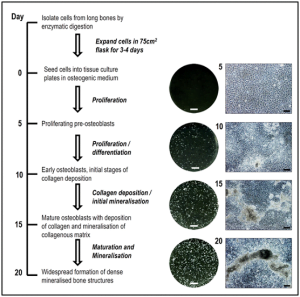Cell lines are in vitro model systems that are widely used in different fields of medical research, especially basic cancer research and drug discovery. Their usefulness is primarily linked to their ability to provide an indefinite source of biological material for experimental purposes. Under the right conditions and with appropriate controls, authenticated cancer cell lines retain most of the genetic properties of the cancer of origin.
The establishment of a new cell line is a very complex process that is still not well understood. The success rate for the establishment is low and unpredictable for any specimen of origin. This statement could seem paradoxical when considering that the stabilization of a cell line starts with a sample of tumours able to grow vigorously in vivo, escaping all cellular mechanisms that are involved in the control of the cell cycle and cell death by apoptosis.
Cell Lines in Modern Cancer Research
Modern cancer research still relies heavily on human cancer cell lines. In fact, they are frequently utilised as preclinical model systems to understand how mechanisms work and how to treat patients. Notably, the development of -omics technology has allowed for the creation of extensive databases for the characterisation of the majority of current cell lines ,and has various advantages over animal cell culture. Additionally, the information obtained from these studies that was made available online served as a valuable resource for the study of cancer cell lines and made it easier for researchers to choose the best in vitro model system for their research studies.
Typical Mutations in Cancer Cell Lines
The mutations in human cancer cell lines are one of their distinguishing characteristics. Tumor suppressor genes and oncogenes are two types of mutations that contribute to the aetiology of cancer. Mutations in these genes cause the uncontrolled proliferation of malignant cells. Tumor suppressors help with DNA repair and apoptosis, preventing normal cells from developing into cancer cells. Oncogenes, in contrast, are genes that, when their expression is controlled (proto-oncogenes), generally control cell division; when mutations arise in these genes, they are continuously active.
Cancer Cell Lines in Immuno-oncology Research
CAR T cell therapy is one of the most important recent developments in cancer treatment research. This entails gathering the T cells of a cancer patient, stimulating them, and modifying them to produce chimeric antigen receptors that are exclusive to antigens from their own tumour cells using a retroviral vector. They will recognise, target, and eradicate malignant cells when multiplied and injected back into the patient as CAR T cells. But because of how patient-specific this treatment is, researchers are now using CRISPR to create universal CAR T cells that may be given to any patient.
There will undoubtedly be an increase in clinical trials employing CRISPR to treat different diseases over the next few years, including those that modify immune cells to make them more effective at identifying and eliminating malignant cells. Additionally, high-throughput CRISPR screens have made it possible to identify numerous genes that may be involved in oncogenesis, which will eventually result in novel cancer treatments.



